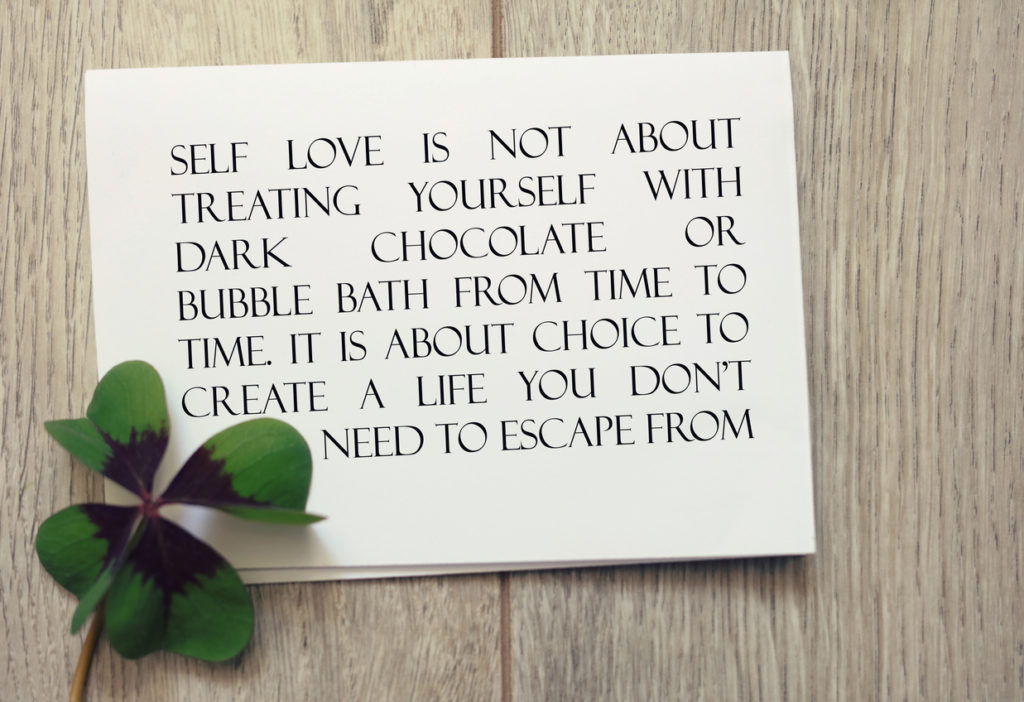Self-love is akin to Frodo’s trek to Mordor, except the ring is your battered self-esteem. Gollum is every toxic relationship you’ve ever clung to because you thought you didn’t deserve better. Imagine this: a world where the notion of self-love isn’t just a trendy hashtag or the exclusive domain of social media influencers who pout in a selfie accompanied by the hashtag #SelfLove in the caption as if the act of contouring their cheekbones is akin to a deep meditative journey into the soul. Today, February 13th, the official Self-Love Day, can conjure one’s Instagram feed into a relentless stream of bubble baths, face masks, and #blessed affirmations. Still, for many of us, self-love is a subject that, in all honesty, often feels as elusive as finding a perfectly ripe avocado at the local supermarket. Yet, beneath the froth and frivolity of social media, the quest for self-love taps into something deeply archaic, a yearning for acceptance and understanding that resonates with the very core of our being.
The irony of self-love is that it’s both incredibly simple and bewilderingly complex. It’s about being kind to ourselves but often feels like trying to solve a Rubik’s Cube in the dark. I’ve always found “self-love” to sound a little funny. We live in a world where humility is a virtue (or, if you’re like me, raised in a very religious household where humility was associated with Godliness). And let’s not even get into the gender-based behavioral differences that some of us were raised with. Now that I’m older, I can begin to find some cosmic humor in the mixed messaging. Amid “being humble,” we are simultaneously encouraged by the world to parade our self-esteem like it’s Mardi Gras in the realm of personal development. Toot your own horn, they say, and then when you do, you might feel a twinge of awkwardness and cringy (or at least I can find that in myself). The duality can be a tightrope walk over a canyon of cognitive dissonance.
Loving oneself is further complicated by ever-shifting goalposts of fulfillment, success, and beauty. We’re bombarded with images and messages that we’re not enough; not thin enough, not smart enough, not popular enough, not old enough, not young enough, not successful enough, not beautiful enough. But, let’s strip away the layers of commercialized fluff and Instagram filters to get to the heart of the matter: self-love is darn hard. It’s an odyssey, a quest fraught with more peril than trying to choose the shortest line at the supermarket or the fastest lane on the highway. Self-love requires us to confront the goblins of our insecurities, the dragons of our past traumas, and the occasionally unreliable GPS of our intuition. It demands that we look in the mirror and say, “You know what? You’re doing okay,” without the immediate reflex to point out a new blemish or wrinkle.
Why, you ask, would anyone subject themselves to such a Sisyphean task? Because the lack of self-love is like walking around with a pebble in your shoe. It’s a minor inconvenience at first, but over time it affects your gait, posture, and ability to enjoy the journey. You start hobbling through life, convinced that the path is the problem, unaware that the solution is as simple as removing the pebble—or, in this case, embracing the mushy concept of self-love.
This is the path of the brave. It’s a raw, gritty, often unglamorous task of actually liking, nay, loving oneself. It’s a concept that, on the surface, seems as straightforward as breathing but, in practice, feels more like assembling IKEA furniture without the instructions — a genuine comedy of errors, replete with moments of self-doubt, frustration, and the occasional existential crisis. Self-love is less about ego strokes and Narcissus’s pondside antics and more about acceptance; less about perfection and more about compassion. It’s about staring into the abyss of our own imperfections and deciding that we are worthy of kindness, especially from ourselves.
We can start by rewiring our thoughts, beliefs, and expectations groomed by every fairy tale we were ever told. The ones that from the moment we’re old enough to understand language, we’re spoon-fed a narrative that love is something external to be earned, won, sought, or fought for. A hero or heroine or someone with significantly better hair than our own who slayed the dragon on our behalf and released us from our ancient curse. The idea that we could — should even — find that love within ourselves before turning to the world outside sounds like a revolutionary act, bordering on rebellion. Well, it is. It’s an act of defiance against a society that profits from our self-doubt. Self-love is a declaration that we are worthy, even when we don’t feel like it, especially when we don’t feel like it.
Hopefully, it won’t take you as many decades as it did me to learn that loving oneself is the foundation upon which we not only finally find the love we crave, but have plenty of unconditional love to give. It’s the oxygen mask principle in full swing: you’ve got to secure your own before offering it to another. Without it, we’re just walking around looking for others to fill a void that only we can honestly fill. And how can we offer anything to anyone else if we’re empty? If we can offer ourselves acceptance, we will see through the emptiness of seeking validation through likes, swipes, nods, and winks. The most essential head nod is the one we give ourselves. It’s the foundation for every other kind of love because it teaches us the language of love in its purest form — unconditional, unwavering, and unending. In this jumbled mess of existence, finding a way to love ourselves amidst the chaos is perhaps the most honest expression of hope.
Self-love is also about setting boundaries, which sounds straightforward until you realize it involves saying “no” to people without following up with an explanation or an apology. It allows you to give without depleting yourself and love without losing yourself in the process.
Self-love is embracing your quirks, like how you’re inexplicably bad at opening envelopes without causing a paper massacre or your talent for remembering obscure facts about Pangolins. Self-love is finding joy in the little victories, like when you finally figure out the perfect ratio of coffee to half-and-half, wear an outfit that makes you feel like you can conquer the day on five hours of sleep, or at least convince your toddler to eat more than Goldfish crackers and yogurt squeezes.
But here’s where the plot thickens, and the journey inward becomes a tale worth telling. This quest for self-love isn’t about reaching a state of narcissistic self-adoration, where every mirror is an opportunity to wink at yourself and blow kisses. No, it’s about developing a relationship with the person you spend every second of your life with — you. It’s about finding humor in your quirks, grace in your errors, and a kind of stubborn, enduring affection for the person you are, even on your worst days. It’s about looking at your reflection — metaphorical or literal — and saying, “Sometimes you’re an absolute mess, but no worries, I’ve always got your back.”
Ultimately, self-love is about recognizing that we’re all works in progress, beautiful mosaics of triumphs and failures. It’s about understanding that the most enduring love story we will ever write is the one with ourselves. And like all great love stories, it’s filled with awkward moments, embarrassing missteps, and a fair share of laughter. But it’s ours, and it’s worth every moment. May your path be filled with self-kindness, your steps guided by compassion, and your selfies, should you choose to take them, be pout-free.
Originally published on Tamara McCleary’s LinkedIn: https://www.linkedin.com/pulse/love-thyself-rebels-guide-claiming-february-13th-your-tamara-mccleary-qcyge



